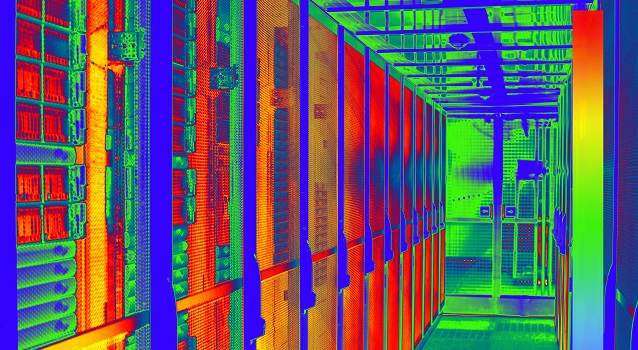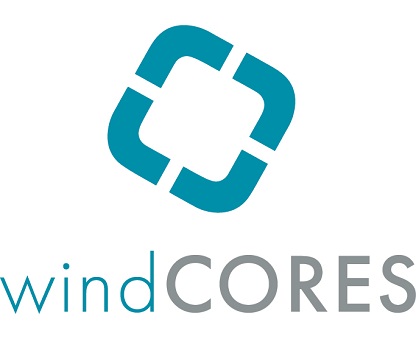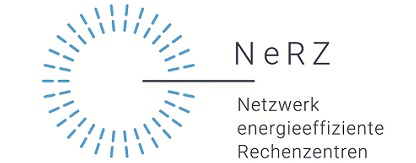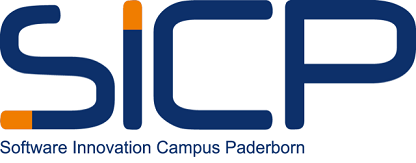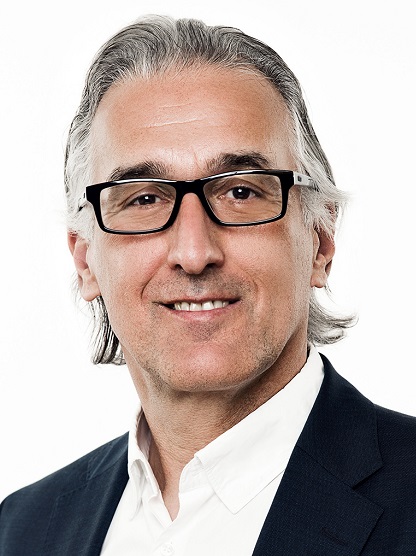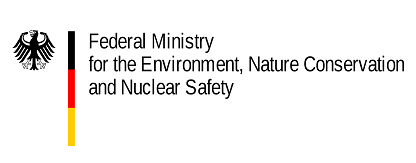Data Centre Heat Exchange with AI-Technologies (DC-HEAT)
The world of living and working is becoming increasingly digital. Watching your favourite series in the highest quality at any time, exchanging information on social media platforms and accessing data from anywhere via cloud services – all this has become a matter of course. Many companies are restructuring production processes and offering new digital services. Digital solutions also offer enormous opportunities in education and medicine.
Data centres need more and more energy
To make sure that all this works, millions of servers in data centres work in the background. These data centres require more and more energy. In Germany, the energy requirements of data centres have risen by around 50 percent since 2010. In total, they will need 15 billion kWh in 2019, more electricity than the whole of Berlin. This enormous amount of energy is converted into heat in data centres and then released unused into the environment.
One opportunity to operate data centres more sustainably in the future is the use of waste heat from data centres. In Frankfurt/Main, the existing data centres require more than 20 percent of the city’s total electrical energy. This amount of energy would be sufficient to heat around 15 percent of the buildings in Frankfurt and supply them with hot water.
Heating buildings with waste heat from data centres
The DC-HEAT project was developing a concept which, on the one hand, does not simply let the waste heat in data centres go up in smoke. On the other hand, it should be possible to use artificial intelligence (AI) to determine ideal locations for data centers where their waste heat can be optimally integrated into local and district heating networks. In addition, AI models should make it easier to assess the impact of waste heat sources on the urban climate. Furthermore, data was collected and potentials were determined that can facilitate the future planning and design of heating networks in the Frankfurt urban area.
Frankfurt/Main is the ideal location for the project
Frankfurt/Main was the ideal location for the project, as 40 percent of the large computer centres throughout Germany are located here. The city has also adopted a master plan with the aim of becoming climate neutral by 2050. Heating networks will play a central role in this. The high national and international visibility of Frankfurt as a data centre location can help the lighthouse project to develop exemplary solutions for many other locations of this kind.
The DC-HEAT research project (FKZ 67KI1012A) was funded by Federal Ministry for the Environment, Nature Conservation and Nuclear Safety (BMU) under the programme AI Lighthouses for Environment, Climate, Nature and Resources. Within the framework of the Federal Government’s AI strategy, this programme funds projects which use artificial intelligence to meet ecological challenges and which are exemplary for environmentally, climate-, health- and nature-friendly digitisation (“AI lighthouses”). The responsible project management organisation for the funding programme was Zukunft-Umwelt-Gesellschaft (ZUG) gGmbH.
In the follow-up project DC2HEAT, the solutions designed in DC-HEAT are now being implemented.
